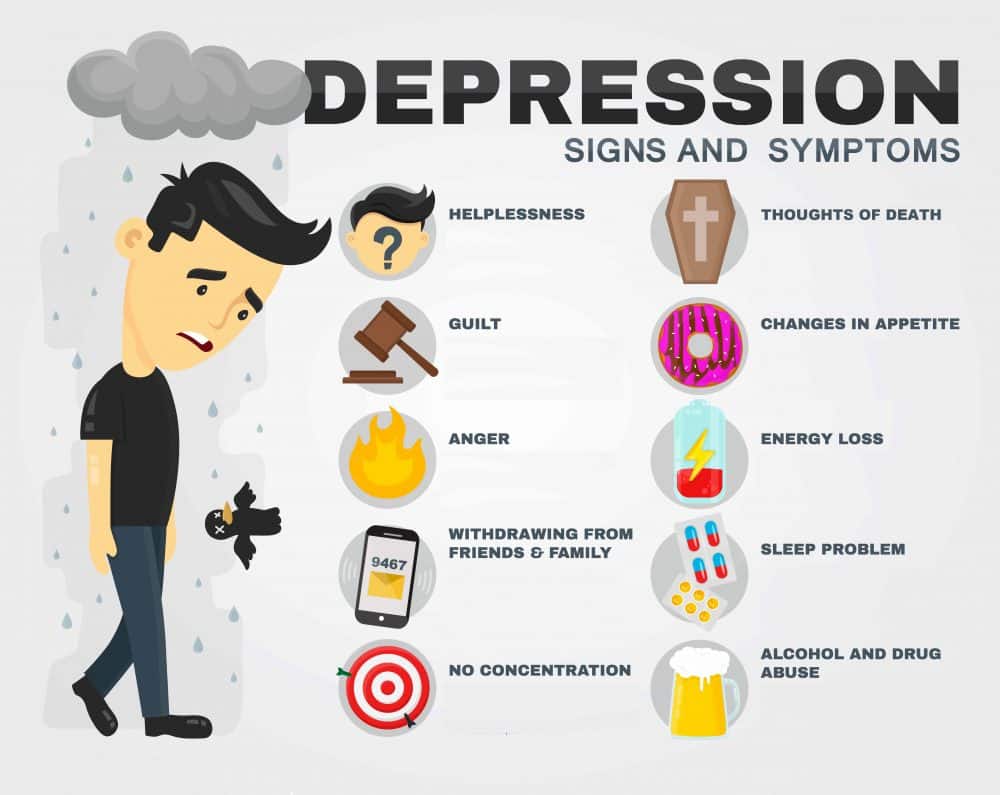
Birth Injuries Impact the Mental Health of Fathers
Birth injuries are traumatic for mothers and fathers. The emotional devastation of a permanent or debilitating injury to a child is unimaginable. Parents anticipate the arrival of their little one with so many hopes and fears. When things go wrong, most people sympathize with the mother primarily. While this is a natural response, we must not forget that mental health doesn’t discriminate.
Birth injuries have an impact on the mental health of fathers as well, so why is this not discussed more often? Here in the United States, the impact of birth injuries on fathers is not a mainstream topic. In the United Kingdom, however, it is a topic that is at the forefront of research, and is becoming more widely accepted.
New studies and legal trends in the UK show startling facts about fathers whose infants have suffered from a birth injury. Perhaps this research will help open the discussion here in the U.S. as well.
Postnatal Depression and Fathers
Postnatal depression, also called postpartum depression (PPD), seems like a term used exclusively related to mothers. A taboo subject in its own right, postnatal depression affects 11-18 percent of new mothers.
It may surprise you to know postnatal depression also affects up to 25 percent of fathers in the months following the arrival of a child. The number skyrockets to 50 percent of men whose partners experience depression as well.
When a traumatic birth injury occurs, fathers often feel helpless. There is a great desire to protect the partner and child, and it can be incredibly stressful having to wait and watch. Many birth injuries also cause financial pressure, which places stress on the entire family. Parents may not be able to work for a period of time, or may face overwhelming medical bills. In these instances, mothers and fathers experience higher rates of postnatal mental illness.
Fathers are particularly at risk for developing depression due to:
- Changes in the marital relationship or partnership
- Feeling excluded or jealous
- Impact of maternal depression
- Work and financial stresses
- Lack of support from family and friends
- Lack of a good role model in his own life
Fathers may not exhibit depression in the same way that mothers do. There is often no crying, but instead men may feel frustrated or angry. They may become impulsive and irritable. Fathers who become depressed are more likely to use alcohol or drugs to cope, may become violent, and may discourage breastfeeding.

UK Laws are Recognizing Fathers
Due to the traumatizing nature of witnessing a birth injury, British law allows fathers to file a lawsuit as a secondary victim to the injury. A secondary victim is someone who suffers harm as a result of witnessing an injury to the primary victim. In the case of witnessing birth injuries, the father would bring suit as the secondary victim to the newborn.
To prevent frivolous litigation, the burden of proof is fairly hefty for secondary victims. In order to have a successful claim, secondary victims need to prove:
- The primary victim suffered negligence
- They have a close, loving relationship with the primary victim
- The traumatic event was exceptional, sudden, and horrifying
- They witnessed the harm to the victim with their own eyes and/or ears
- That the secondary victim was not more prone to mental illness than the average person
There are many events that might enable a British father to file a claim as a secondary victim, and witnessing the traumatic birth and injury or death of his child is certainly one of them.
Helping Fathers is Helping Families
In the UK, medical professionals screen all mothers for antenatal and postnatal depression, but there is no similar monitoring prescribed for fathers. It seems clear that there is a gap in needed support for fathers expecting a child, not only in the UK, but here in the U.S. as well. Certainly, fathers experience pain and anguish for their injured newborn – pains that must be profound.
The American Academy of Pediatrics (AAP) recommends a whole-family approach to wellness. The organization has recently recommended that doctors screen fathers for depression during or shortly after pregnancy. The whole-family approach includes monitoring the mental health of the entire family, including the father and any siblings.
The goal is to ensure that the family has the time and opportunity to express their emotions about the new addition to the family. This is especially important when the new baby comes home not only with the usual baby needs, but with the special needs that often follow a birth injury.
Children of fathers who battle depression are more at risk for emotional and behavioral challenges later in life. They are also at an increased risk of developmental delays. If there are difficulties in the marriage or partnership, depression can escalate, and these risks become even greater.
It is important to remember that depression is not a sign of weakness or bad parenting. Bringing a new baby into the world, and into the home, can be a stressful process even in the best of circumstances. When a birth injury occurs, the “normal” stresses of the situation increase exponentially.
What is most important is that families who recognize the signs of depression in a mother, father, or sibling get help as soon as possible.
An Overview of Birth Injuries
- Cerebral Palsy – One of the most common birth injuries, cerebral palsy affects almost 10,000 children every year. In many cases, physicians can reduce the risk of CP by taking proper corrective measures during pregnancy, labor, or delivery.
- Oxygen Deprivation Injuries – From hypoxic ischemic encephalopathy to seizures and hemorrhage, all these injuries can and should be avoided during birth. Often, these oxygen deprivation injuries are the result of failing to perform a C-section in a timely manner when complications or fetal distress are apparent.
- Cephalohematoma – This is a bruise to the area between the brain and the outer layers of skin, usually over the baby’s soft spot. These injuries are often preventable by following guidelines and using appropriate force during delivery.
- Brachial Plexus Injury – An injury to a group of nerves near the collarbone that control arm and hand function. During delivery, the shoulder and collar bone area can be injured due to pulling or tugging, especially if labor is difficult. Erb’s palsy and Klumpke’s palsy are among the most common types of brachial plexus injuries.
- Shoulder Dystocia – A complication when the baby’s shoulders become trapped behind the mother’s pubic bone causing hemorrhaging, uterine rupture, collarbone fracture for the infant, brachial plexus injury, and sometimes death. Timely C-sections can and should avoid the worst complications.
- Meconium Aspiration Syndrome – A complication of long and difficult labors, a newborn can breathe in meconium, which is their bowel movements in utero, and develop severe breathing problems as a result.
- Delivery Tool Injuries – Difficult deliveries sometimes require the use of tools like forceps or a vacuum extractor to aid in the birth. Misuse or a mistake with these tools can injure a newborn quite easily.
- Persistent Pulmonary Hypertension of the Newborn (PPHN) – A condition in which a newborn has difficulty breathing outside the womb. PPHN can be the result of anti-depressants the mother took such as Paxil, Zoloft, or Celexa.
No matter what sort of birth injury occurred, an injured and suffering newborn is every new parent’s worst nightmare.
The Emotional Trauma of Birth Injuries
It is fairly common for parents to suffer psychological pain and trauma after a negligent or avoidable birth injury harms their child. When medical staff compound the mistake that harmed the newborn with poor treatment of the mother and poor communication with the father, the trauma to the whole family is worse. The family may now have to juggle anxiety, PTSD, or adjustment disorders on top of caring for an infant who may have special needs.
Men who have been present for the traumatic birth of their own child report feeling powerless or helpless when their partners need emergency care and their babies are hurt. They witness a daunting event and can do nothing to help. Some fathers report feeling invisible during the birth of their child.
It is vitally important to acknowledge the impact this type of trauma can have on a father, and the impact a father’s trauma can have on the overall well-being of his family.
Considering the prevalence of postnatal depression among mothers, the AAP says a father who is not traumatized or depressed is a hugely valuable asset to the well-being of a family with a newborn. A mentally well father is a “protective factor” for children whose mothers are battling depression.
Birth Injury Attorneys Who Care
The psychological trauma of witnessing a birth injury is certainly undeniable. Both mothers and fathers who have the misfortune to witness birth injuries are forever changed by the event.
Sadly, most birth injuries are preventable. Your baby’s suffering, your mental anguish, and your partner’s trauma could have been prevented in most cases. Doctors who allow negligence – recklessness, carelessness, inexperience, or malicious wrongdoing – to harm a newborn baby can be held financially responsible for the suffering their actions caused.
Holding negligent healthcare providers accountable can help parents recover by offering some peace of mind that the provider may not be able to harm additional children and families. Further, families who qualify for a birth injury lawsuit can also recover financially, which compensates them for medical expenses, pain and suffering, and long-term care if applicable.
If a birth injury has harmed or traumatized a member of your family, the lawyers at Birth Injury Guide can help. Contact us online or call 1-877-415-6603 to schedule a free consultation.

